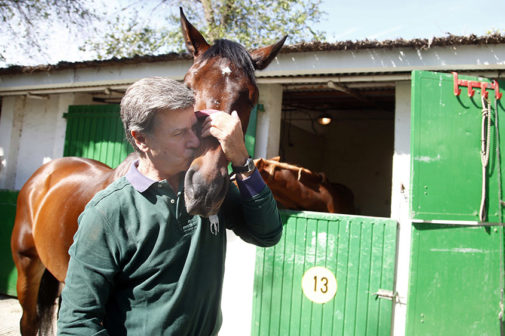I hardly know anything about Cayetano Martínez de Irujo. I talked to him only once. It was in the lobby of the hotel in Buenos Aires where the Madrid delegation was staying, which took for granted the Olympic designation that Tokyo later took. Fun days. I will be pious and I will not give the name of the minister who, at an early hour, remained crouched in a hallway, wearing sportswear, waiting to see if Rajoy went to the gym to make the encounter on the tape.
In an atmosphere of unleashed optimism, with countless politicians, businessmen and demi-monde characters who had traveled to leave in the photograph of the victory, Cayetano, connoisseur of the inner worlds of Olympism, was the only one who said to the reporter: " This is not going to come out. " I sympathized immediately with that man who remained alone and quiet, layered at the bar next to a cafe, with something in the bearing that reminded me of Wodehouse's characters and the old stuffed salmon of the Balmoral bar, while around him foolishly euphoric people They talked loudly and patted their backs.
What did not occur to me then was the possibility that this Cayetano could be distinguished by sadness. Something that seems to me evident now that, being a man located in a double border situation -the age and the death of the mother, with what he had of redefining the family-, he has completed through interviews some unusual confessional episodes , exciting for what they have of relief, which will culminate these days with the publication of a book of memories that, judging by the advance that brought the newspaper yesterday, will be honest, daring. And, for all this, inconvenient to the numismatic gravity of the environment, that of the Duchy of Alba de Tormes. That, the truth, once the entry into Lisbon of one of its owners was completed, we were becoming less interesting to pay attention.
That emotional charge that Cayetano tries to break free of was really interesting to me from the very moment I saw him break into tears in an interview while talking about his father's premature death. He said it made him feel abandoned as if the father had chosen not to be with him again, this psychological poison, terrible for the teenager who tries to push forward the adult whose embryo he carries inside, of which I know a lot. Of other things that have happened to Cayetano I know less. For example, of the relief for the restlessness that is given to serial sex, torrential, daily, with the most beautiful models of Madrid that one meets in the most exclusive nightclubs of the 80s. That experience I fear not having it, I I was alienated by putting Iron Maiden on the walkman .
The advance of the book also announces first-hand love stories with mature women who remember Rod Stewart's Maggie May . And beatings at the hands of nannies that conditioned the relationship with every subsequent woman. And children's solitudes in palatial corridors too wide, so much that no one noticed the disappearance of a child. And cocaine. It suggests, above all, the enormous desire for approval, affection and belonging of a man who, young, finds himself in the passion for horses and who, mature, takes a last slap of sentimental uprooting when the brother and successor he rejects it, both him and the projects that could have matured to update the house.
We are facing a person who, after spending half a century cultivating modesty and containment, takes and spills. This makes Cayetano a different, deeper and more brittle person, than the character of the horse carriages and the Cordoba hats of the Andalusian professionals at the fair. Good for him.
According to the criteria of The Trust Project
Know more- Mariano Rajoy
- Madrid
- LOC
Letters to K. The dejected athlete
GrandstandCatalans, Scots and Sir John Elliott
OPINION What never comes back

